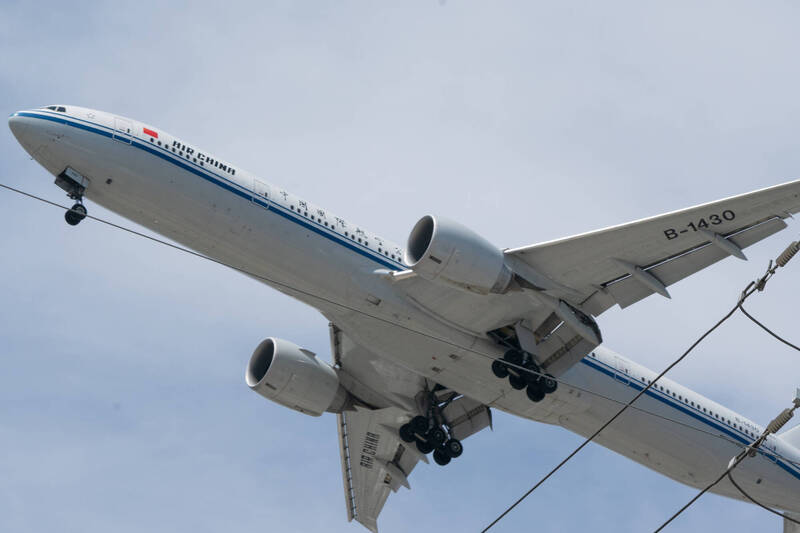The U.S. Department of Transportation has drafted an order and sent it to White House officials for review, requiring Chinese airlines carrying passengers to the U.S. not to fly over Russian airspace. The picture shows an Air China flight flying over Los Angeles.
(Bloomberg file photo)
[Central News Agency] People familiar with the matter pointed out that at the urging of the airline industry, the U.S. Department of Transportation recently drafted an order and sent it to White House officials for review, requiring Chinese airlines carrying passengers to the United States not to fly over Russian airspace.
"The New York Times" (The New York Times) reported that since the war between Russia and Ukraine last year, the United States, the United Kingdom, Canada and Europe have banned Russian-registered aircraft from entering their airspace. The plane flew over Russian airspace.
Please read on...
This forced American airlines to detour routes between Asia and the United States, consuming more time and fuel, making it difficult to compete with foreign airlines that do not need to detour.
In addition, U.S. carriers had to suspend more than a dozen new routes to Asian cities including Mumbai, Seoul and Tokyo.
As a result, U.S. airlines joined hands to put pressure on the White House and Congress to impose the same restrictions on their foreign counterparts for the sake of fair competition and not to pass through Russian airspace.
American Aviation Association spokeswoman Marli Collier said the Biden administration should "take action to ensure that foreign aircraft flying over Russian airspace are prohibited from taking off, landing and transiting at airports across the United States."
In this case, the Department of Transportation drafted relevant orders and sent the draft orders to White House officials, including officials from the National Security Council, on the 13th for consideration this week, people familiar with the matter said.
But national security officials worry about the potential diplomatic consequences of restricting players from longtime allies such as India, and could exacerbate already strained U.S.-China relations.
Manisha Singh, a former assistant secretary of state for economic and commercial affairs in Washington, said, "It is a pity for our aviation industry that this is a derivative issue." Measures that in turn affect U.S. tourism and commerce.
